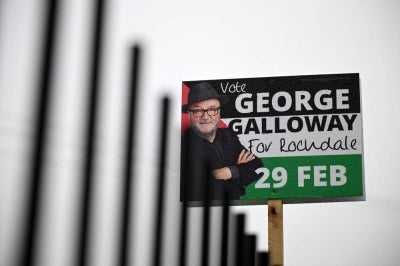Strategic Dissent or Potential Pitfalls? Emotions are high in KKB amid protest voting dilemma

The Kuala Kubu Bharu (KKB) by-election is fast approaching as the ninth seat to be contested following the 15th General Election in November 2022. Four candidates have been announced, but all eyes are on the respective candidate for the Unity Government and the largest opposition bloc, Perikatan Nasional.
Muda, calling itself the third force, opts not to contest the election but will continue to voice discontent with the government. Interestingly, the independent candidate in the election, Nyau Ke Xin, has also claimed to become a candidate to provide a platform to protest against the government. Similar goal, but different strategies.
In a democracy, one form of protest that is both nuanced and effective is voting against the government in order to send a message to those who are currently in power. There are many people who believe that this technique of dissent is a direct avenue through which the electorate can express their unhappiness with the current state of affairs.
In Malaysia, the term “referendum” is thrown about nonchalantly to describe these by-elections. On the other hand, if this method is not implemented with the necessary level of discernment and foresight, it has the potential to backfire, resulting in unexpected effects that may be more detrimental to the constituents themselves than they are to the government.
The appeal of voting against the government candidate as a means of protest cannot be denied. It is a form of criticism, a way for the general public to express their protest by saying, "We demand change."
This type of voting may be essential to a thriving democracy, which is defined by an electorate that is engaged and ready to hold its leaders accountable. In spite of this, it is of the utmost importance to comprehend that the decisions made during the electoral process have significant repercussions that go beyond the immediate cycle of news headlines and political mileage.
There is a significant cause for concern over the fact that voting for the opposition just as a form of protest ignores the policy consequences of electing alternatives. When voters cast their ballots not in support of a candidate's or party's policy but rather as a simple rebuke to the incumbents, they run the risk of installing an state assemblyman (ADUN) whose policies may be in conflict with their interests or welfare. If those elected to office execute policies that have a negative impact on the environment, for example, the instant gratification that comes from protesting can swiftly turn into a sense of dissatisfaction.
It is possible that the electorate's desire to send a statement could result in significant setbacks for the community in scenarios like these.
In addition, a strategy that involves voting against a candidate in order to convey a message runs the risk of weakening the dynamics of constructive political engagement. It is possible that it will foster a political culture that dwells on negativity and resistance for the sake of disagreement rather than one that is founded on constructive debate and the search for an area of agreement.
Compromise has, of course, become a dirty word in politics today. Its opposite—obstinance—however has the potential to generate cycles of retribution and paralysis, in which subsequent administrations focus more on undoing one another's efforts rather than furthering the public good.
This strategy may also work to alienate people and fracture the political debate, which is another potential outcome. When significant segments of the electorate vote in a manner that is regarded as being merely oppositional and not engaging, it has the potential to deepen differences and promote polarisation instead of truly sending a message to the government. In turn, it becomes increasingly difficult for elected officials to govern in an effective and responsive manner.
Having said that, it is not hard to comprehend why voters could feel obligated to show their disapproval through the use of their vote. KKB has 40,000-odd voters, yet all eyes will be on them, for they represent the country’s demography.
The desire to "send a message" via these voters can be a significant impulse under circumstances in which the government is perceived to be unresponsive. With that being said, the effectiveness of such a plan needs to be weighed against the possible long-term effects that it could have on the state government, policy, and the general well-being of society.
The engagement and participation of an informed electorate are essential to the growth and success of a democracy. Voters therefore need to traverse the difficult balance that exists between voicing their unhappiness and making election choices that provide them with opportunities to further their long-term interests.
A protest vote that is not only against something but rather for a candidate or policy that is more closely aligned with the voter's ideals and goals is the most effective type of protest vote. If the opposition’s offer is more appealing, by all means, give them your vote.
The opportunity for actual growth and transformation rests within this nuanced approach. This strategy ensures that the message conveyed through the voting box leads to beneficial change rather than undesired effects.
Syaza Shukri, PhD, is an associate professor and the current Head at the Department of Political Science, IIUM. The views expressed in this article are the author's own and do not necessarily reflect those of Sinar Daily.
Download Sinar Daily application.Click Here!















